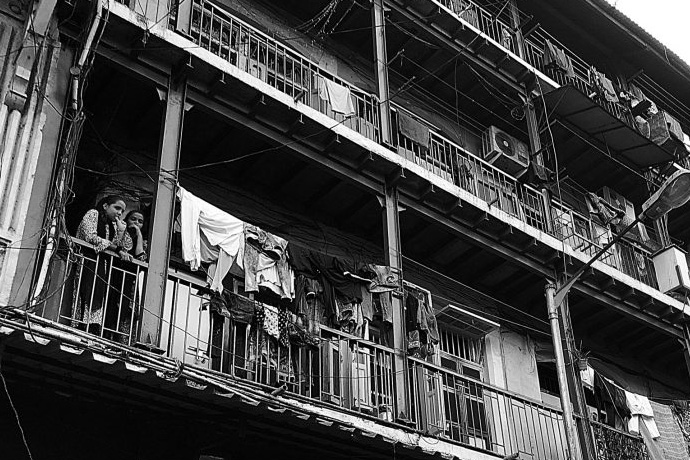
This photoessay captures the heartening stories of sex workers’ children
When most people are figuring out their first jobs or their study abroad options, 22-year-old Radha Datta is finding kindred aspirations in Taniya, Shweta, Shraddha and others—young women she met in Mumbai at a shelter run by local NGO, Kranti. Taniya, she says, wants to be a Zumba instructor. Shraddha and Rani are about to give their Board Exams. Shweta wants to attempt a study-abroad programme once again. She got through Bard once, but opted out due to stress and anxiety. Sounds pretty normal, doesn’t it? That is, until Datta tells you she is talking about daughters of sex workers, rescued by Kranti for a long and exhausting rehabilitation process that would discourage most people. But these young women don’t lose hope, or ambition, as they go through their individual healing processes. Over the last month, these women have become part of Datta’s everyday.
A photography graduate from The Arts University Bournemouth, UK with a specialisation in Fine Arts and Social Documentary, Datta previously collaborated with the Government of Madhya Pradesh to capture the city of Ujjain before and during the Mahakumbh. This led to a coffee-table book of her own, apart from her work being presented in renowned photographer Raghu Rai’s book on the Mahakumbh as well. But the Social Documentary part of her education kicked in when she joined Invest India, an initiative by the Ministry of Commerce and Industry, and began to work with social impact CSR programmes, connecting organisations in need with corporations who could help them meet those needs. Sometime in January this year, she attended an event where she heard Robin Chaurasiya, the powerhouse founder of Kranti, speak about the organisation and what it stands for.
“Something just clicked,” says Datta. “I couldn’t even talk to her after the talk but found her on Facebook and sent her a message.” Chaurasiya responded to Datta’s enthusiasm, and invited her to Mumbai for an introductory period. Datta accepted, and found herself living at the Kranti shelter, with Chaurasiya and her mother, who also live there, and Taniya, Shweta, Shraddha, Rani and many more rescued women finding means to empower themselves.
Now on a break from her day job, Datta intends to put all her experience towards Kranti, documenting the lives of these young women as well as putting together proposals to help the NGO receive long-term funding. Datta’s advocacy begins with a photo series of the time spent at the Kranti shelter. The photos show us young women whose lives have been disrupted, not only by the circumstances of their birth, but also the way society responds to them from then on. For instance, she tells us, Kranti has had to move their shelter around quite often. Many people while recognising the good it does, don’t want to be neighbours with the shelter, or want their kids mingling with the Kranti girls.
It irks her that most people give lip-service about rescue efforts, but not really show quantifiable support in helping the rescued women get placements at schools or in the workforce. “People are very quick to make assumptions and judgements about these girls,” feels Datta. “I realised to normalise the idea of these children’s future in people’s head… the word needs to get out in the gentlest way possible.” She’s taken up Kranti as her next project to “help people realise that these lovely girls, who lived through nightmares, need nothing but acceptance and not be treated as social outcasts.” Her main goal, she says, is to educate people about the lives of Kranti’s girls, and to change the way society sees and treats them. And of course, in the long term, to help raise funds for Kranti so a more permanent, secure space can be created, to house the burgeoning dreams and aspirations of these young women, who are only just learning how big their world can be.
Source: https://www.vogue.in/


Surely awesome stuff you have shared with your audience… I am a travel blog and follow some specifics. By the way keep working like this
Hey there! Would you mind if I share your blog with my twitter group? There’s a lot of people that I think would really appreciate your content. Please let me know. Thank you
Like!! Thank you for publishing this awesome article.
Im obliged for the blog article.Really looking forward to read more. Keep writing.